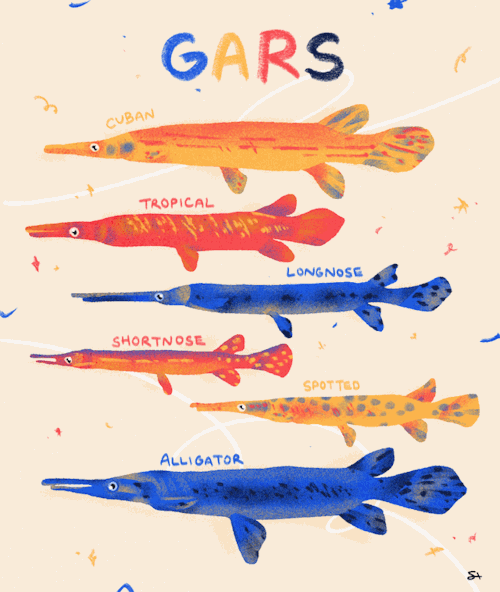
insect enthusiast, occasional aquatic creature observer, amateur postage stamp collector and overall kinda buggy fellow 𓍊𓋼𓍊𓋼𓍊 𓍊𓋼𓍊𓋼𓍊𓍊𓋼𓍊𓋼𓍊𓍊𓋼𓍊𓋼𓍊𓍊𓋼𓍊𓋼𓍊𓍊𓋼𓍊𓋼𓍊check out my stamp collection blog! https://www.tumblr.com/stamp-scout
123 posts
Latest Posts by kinda-buggy - Page 2
Know the difference between isopods and pill millipedes!
Isopods: mmm leaf (breeds really fast)
Pill millipede: domestic enclosure dies
it’s all fun & games having ‘adult money’ to finally buy yourself all the things you always wanted as a kid (see also: pokémon cards, nano bugs, fruit roll-ups)
then before you know it you’re standing outside a gas station putting $45 into the car for the third time this week knowing it won’t even half fill the tank
it sucks that the money you get to spend on like rent and gas is the same money that you get to spend on records and plushies. there should be a serious currency and a fun currency

Fast fast messy sketch of some mantids! Coloured! Featuring a praying mantis I found (photograph) and this silly guy (Rhombodera sp.)(the illustration) on iNat!
my mom came home from the thrift store nearly in joyful tears and pulled this out of her shopping bag with utter glee

I say "oh don't worry he doesn't bite" and you're confused because you don't see any dog but then you notice a single inchworm moving purposefully across the floor towards you at an alarming pace

here have another pile of critters
This Wet Beast Wednesday I'm going to talk about gars. This needs some clarification because there are a lot of different fish called gar, garfish, or garpike. I'm referring to fish of the family Lepisostidae, the only surviving members of the ancient clade Ginglimodi, which I mostly brought up because Ginglimodi is a funny name.

(image: a longnose gar)
Gars are predatory fish found exclusively in North and Central America, though they have been introduced outside of their native range. Their ancestors evolved in Triassic period and once occupied most of North America and large portions of Europe back when the continents were still connected. They are freshwater fish, though a few species will go into brackish or even marine waters temporarily. The name "gar" is though to come from the old english word for "spear", which is appropriate as gar are very elongated fish and often have pointy snouts. Many other groups of elongated fish are also given the common name of gar or garfish for this reason. Their long snouts are filled with sharp teeth which are used to crush through shells and flesh. Gars are opportunistic predators who feed largely on crustaceans, frogs, and fish and will eat carrion if they find it. The long snouts are also used to dig through sediment in search of prey They move slowly through the water, but are capable of short bursts of speed to catch prey. Most species are apex predators with no natural predators as adults.

(image: a longnose gar with mouth open, displaying the teeth)
The body of a gar is covered with thick, diamond-shaped scales. Their scales are an ancient variety known as ganoid scales which are notable for their shape and composition. Where most bony fish scales have layers of a spongy, bony substance called cosmene, ganoid scales instead have an enamel-like substance called dentine, which is also a component in teeth. The scales are also covered in a rigid, glassy substance called ganoine where other scales use enameloid. Ganoid scales also don't overlap, instead laying next to each other in a manner that provided protection while still allowing flexibility. The result is a suit of armor that makes gar very durable. Because of how durable the scales are, they habe been used by humans for many purposes. Multiple Native American groups would use scales as arrowheads, there are reports of native Caribbean peoples wearing breastplates made of gar skin, and Europeans colonists would layer their plow heads with the scales to protect the,. There is currently a market for jewelry made of the scales.

(image: a close-up of ganoid scales)

(image: an arrowhead made of a gar scale)
Gar typically lay their eggs in early spring, with the female coating vegetation with thousands of sticky eggs. The eggs are toxic to humans, capable of causing sickness when ingested. Because of this, they are unsuitable for caviar. Scientists initially thought that the toxin was an adaptation to prevent predation, but natural predators of the eggs like channel catfish and bluegill are immune. Crayfish are affected by the eggs, though it's not clear if the poison is an adaptation targeting them or not.

(image: a shortnose gar)
The swim bladder of gar is highly vascularized, allowing them to act as lungs. Most gar will surface occasionally to take a gulp of air. While they are capable of surviving on their gills alone in good-quality water, air gulping allows gar to thrive in low-oxygen water where their prey will be sluggish from oxygen deprivation. Most species live around 20 years, but the alligator gar can live upwards of 70 years.

(image: a spotted gar)
There are seven living species of Gar: the Cuban gar, tropical gar, spotted gar, longnose gar, shortnose gar, Florida gar, and alligator gar. The shortenose gar is the smalles species, reaching an average length of 62.5 cm (24.6 in) while the alligator gar is the largest species and one of the largest of all American freshwater fish at an average length of 1.8 m (6 ft) in length. The largest alligator gar on record measured in 2.57 m (8 ft 5 in) and 148 kg (327 lbs). Alligator gar were long considered a nuisance species by fishermen as they preyed on sportfish and as a result, they were frequently killed. This resulted in population losses and the fish being extirpated from many states it was once native to. Now multiple states have laws and regulations protecting them and the population is starting to see a resurgence. Alligator gar and now a popular sportfish and have been introduced to places outside of their native range, becoming an invasive species in many areas including China.

(image: two fishermen with an alligator gar)
Gar meat is edible and is described as having a very unique taste compared to other fish meat. They are not commonly eaten in modern times, but some people consider them a delicacy. Gar meat is known to carry environmental toxins like pollutants and heavy metals, which can make eating them risky. Gar are mostly fished for their scales or for sport. Only the Cuban car is endangered (and critically so) while other species may be locally endangered, but as a whole are not threatened. Gar are used as aquarium fish due to their unique appearance, though they need large tanks due to their size.

(image: a close-up of an alligator gar's head)

longnose gar




sketchbook ‘scans’ from this month :-)

Transgender alligator gar art

in honor of gar week! did you know gars are prehistoric?? i wish i was prehistoric…

Living Fossils - Creatures that remain seemingly unchanged by time. Here's the Coelacanth, the Sturgeon, the Gar, the Horseshoe Crab and the Nautilus! (Gouache on 50x40cm canvas, SOLD)
![ID: A screenshot of a text conversation over Instagram.
"Have you ever been to a gar bar. Would you go to a gay bar"
"*gay"
"[crying emoji]"
[An image of a gar fish facing the camera. There are two more gar fish in the background.]
"Pov you walk into the gar bar"](https://64.media.tumblr.com/9e8bb9fca7bfa3dcb646cb6b38b1ca37/ef5beda3459af03b-62/s500x750/f7963e186e6c4a5657a5d3dae502f6d6c70f5ea1.jpg)
🔥🔥🔥FISH TYPO🔥🔥🔥
[image id in alt]
Goodness Gar-aceous I've Eel-y done it this time!!!



Gars! Alligator and Long-nose.
These and the moray eels are available on my website www.palaeoplushies.com
Made by me and my sister!
PSA

bro,,, to be seen as poetry???? to have someone look at you and see art?????? bro.
my interior decorating goals are that upon entry, any and all minimalists immediately take heavy psychic damage
fire text that says "kill minimalism"

weevil 305

Orange Oakleaf aka Dead Leaf Butterfly (Kallima inachus), family Nymphalidae, India
photograph by rajesh_kumar_photography

So unbeweevable!!!

here is our local sturgeon sculpture. he is shaped like a friend and i love him :)

shimp generator game by @froads has changed my brain chemistry in irreparable ways 🦐
(see above for the current state of my brain expressed in pictorial form)
love furby’s, man i still remember the blue one i had, it was the OG model design.
poor thing didn’t make the move from canada to aus all that way, as 10yr old me didn’t think to remove the batteries before it got sent over via shipping container. sadly the batteries corroded and it was never the same afterwards. it would turn itself on and off at random intervals, and it’s eyelids never shut properly. it also sounded… wrong.
it does make for a hilariously terrifying storytime however, as one night our new kitten knocked it off the desk where i kept it (covered by a bucket so i wouldn’t have to see it’s perpetually glowing eyes in the dark) the thing suddenly came to life with a cackling screech, writhing around on its back with its pupil-less eyes wide open and flashing wildly.
scared the everloving shit out of my formerly asleep younger self, genuinely to this day i think it must’ve been possessed or smth

the day i finally see a velvet worm in the flesh is the day i ascend from this mortal vessel

Velvet Worm (Euperipatoides sp.), family Peripatopsidae, QLD, Australia
photograph by Stephen Zozaya





